The accepted answer to this question does NOT validly answer the question! It happens to give the correct answer, but that answer isn't shown by the evidence they provided.
What that answer shows is that Key lookups on a Dictionary or HashSet are vastly quicker than looking up in a List. Which is true, but not interesting, nor surprising, nor proof that they have the same speed.
I've run the code below to compare the lookup times, and my conclusion is that they ARE in fact the same speed. (Or at least, if there is any difference, then the difference is well within the Standard Deviation of that speed)
Specifically, 100,000,000 lookups was taking between 10 and 11.5 seconds for both, for me, in this test.
Test Code:
private const int TestReps = 100_000_000;
[Test]
public void CompareHashSetContainsVersusDictionaryContainsKey()
{
for (int j = 0; j < 10; j++)
{
var rand = new Random();
var dict = new Dictionary<int, int>();
var hash = new HashSet<int>();
for (int i = 0; i < TestReps; i++)
{
var key = rand.Next();
var value = rand.Next();
hash.Add(key);
dict.TryAdd(key, value);
}
var testPoints = Enumerable.Repeat(1, TestReps).Select(_ => rand.Next()).ToArray();
var timer = new Stopwatch();
var total = 0;
timer.Restart();
for (int i = 0; i < TestReps; i++)
{
var newKey = testPoints[i];
if (hash.Contains(newKey))
{
total++;
}
}
Console.WriteLine(timer.Elapsed);
var target = total;
Assert.That(total == target);
timer.Restart();
for (int i = 0; i < TestReps; i++)
{
var newKey = testPoints[i];
if (dict.ContainsKey(newKey))
{
total++;
}
}
Console.WriteLine(timer.Elapsed);
Assert.That(total == target * 2);
Console.WriteLine("Set");
}
}


